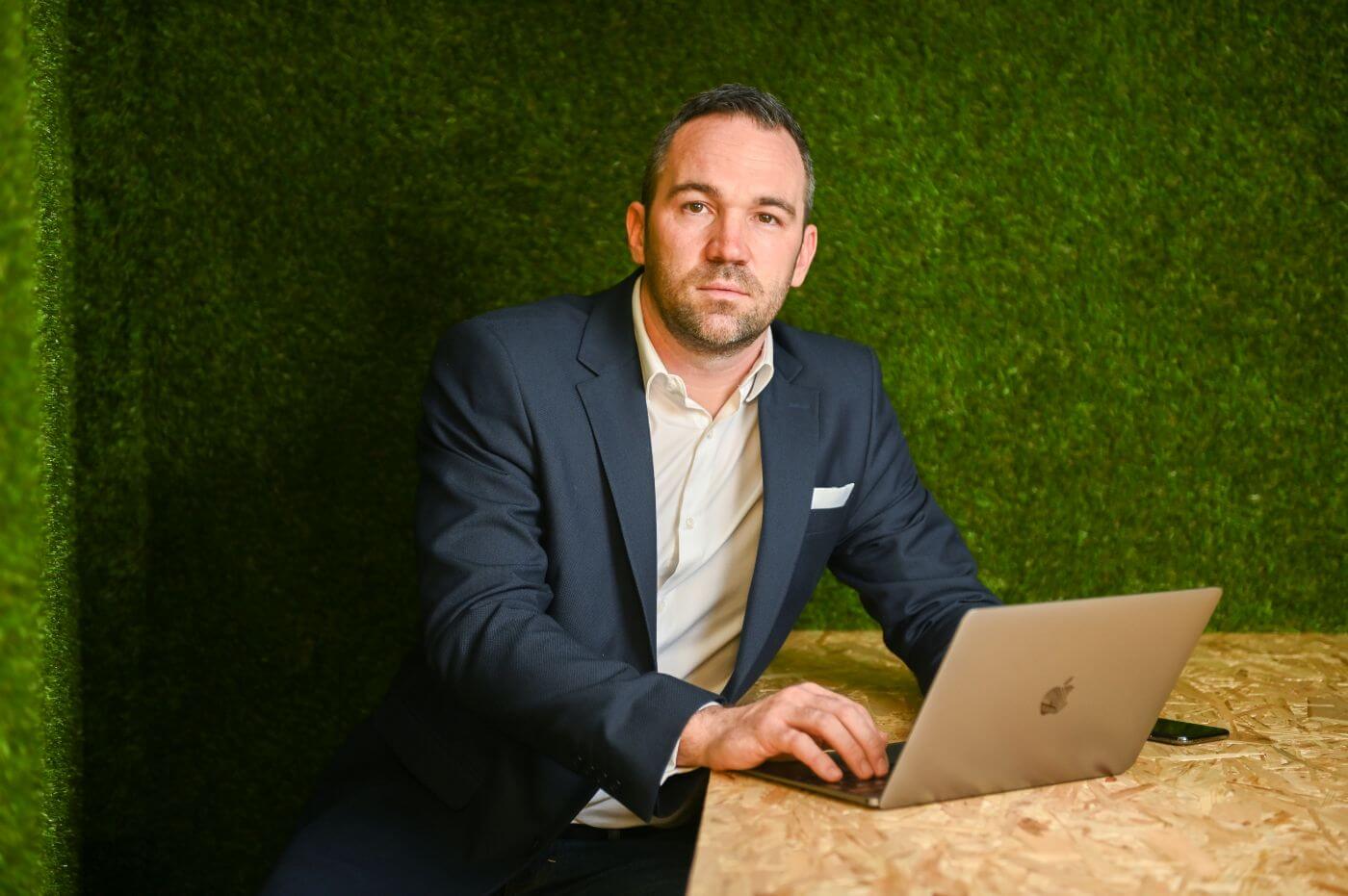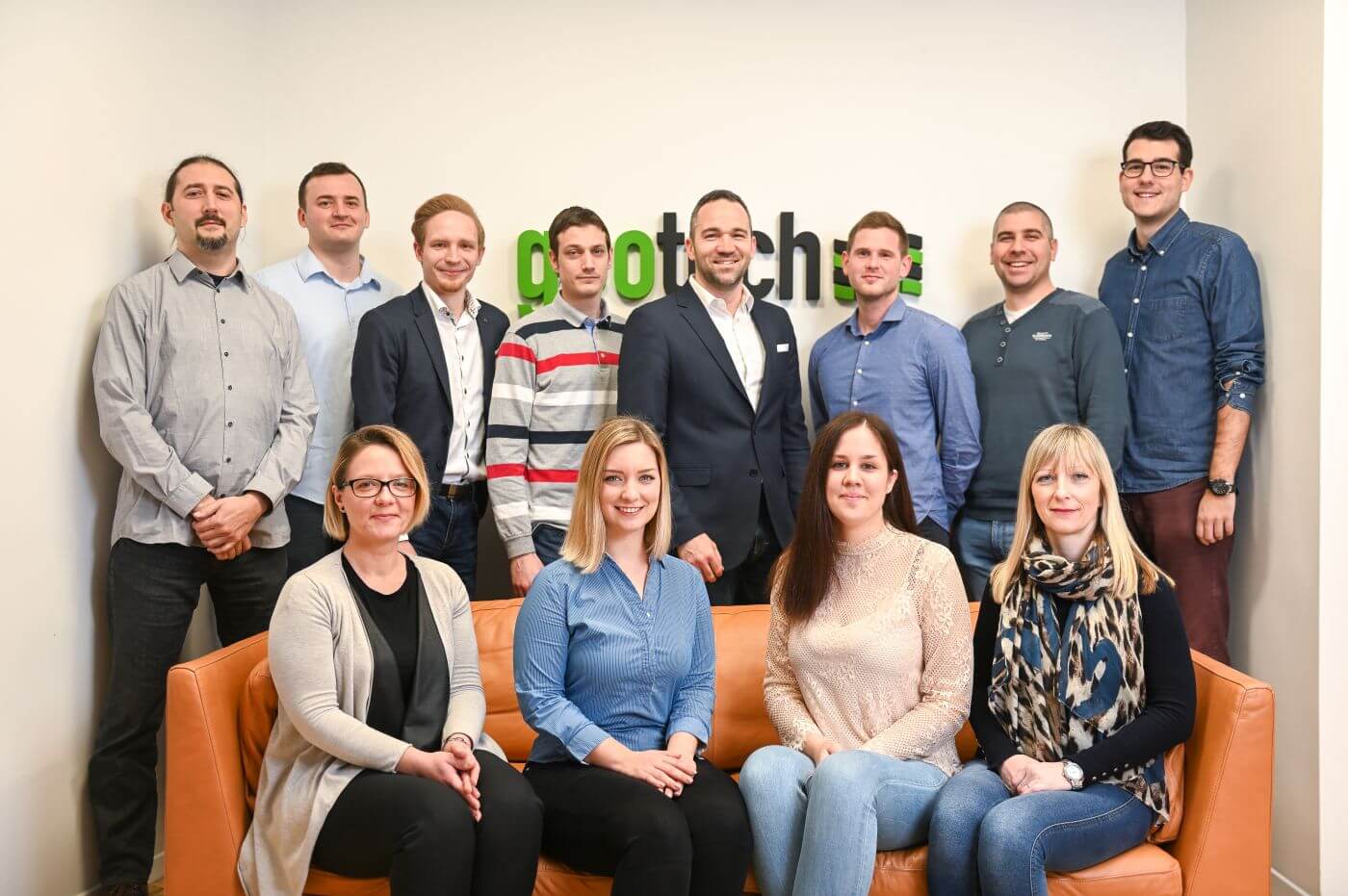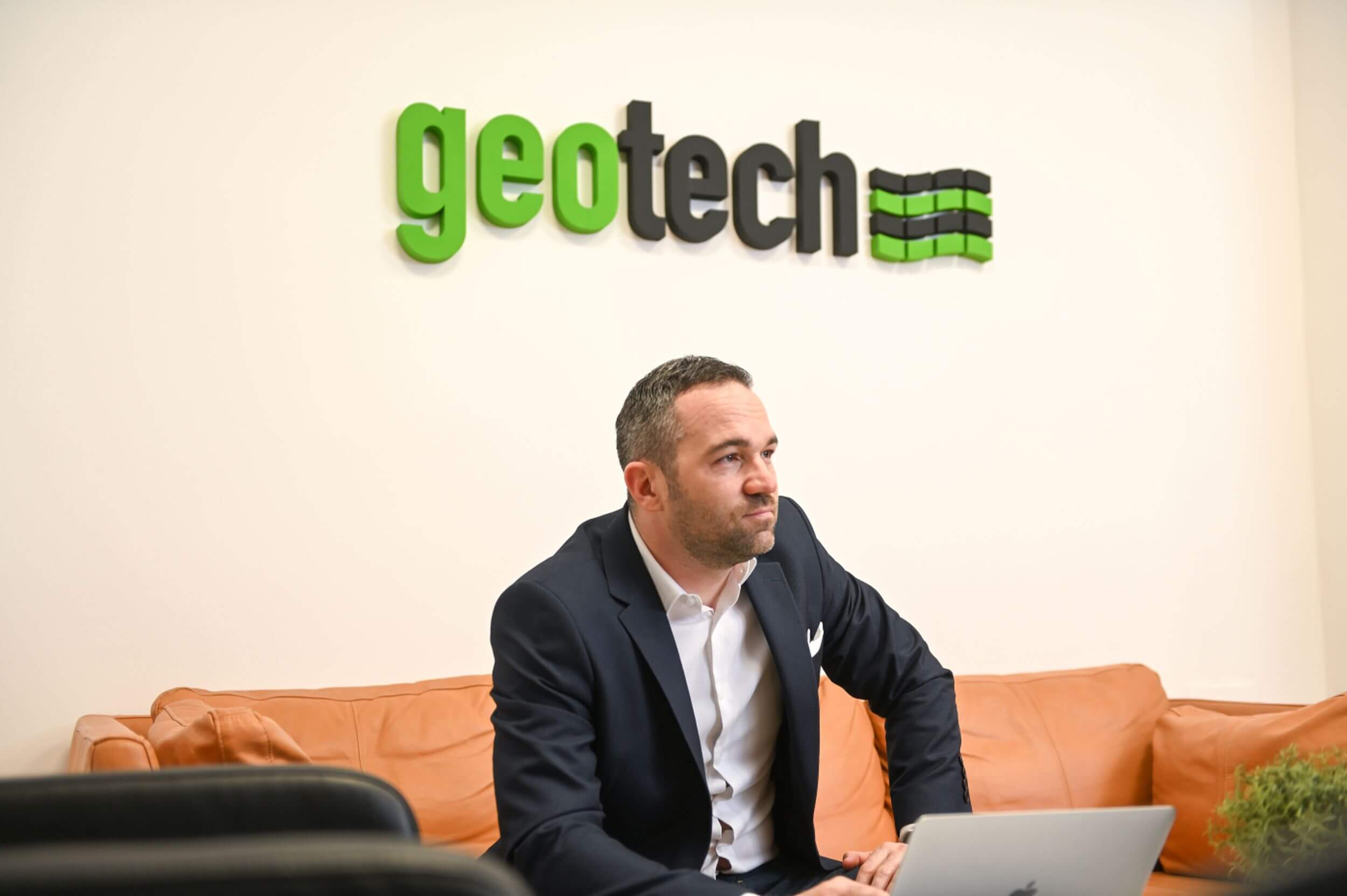A review of the past year – The year of the major projects
Geotech’s CEO Mirko Grošić gives a brief overview of 2019, a successful and eventful year in all business aspects. Read the following interview to find out what was most significant in the past year and what our plans for the future are…
How satisfied are you with what you achieved during the past year?
The past year was the best year in Geotech’s business history. The results were excellent in every aspect – financial, personnel and professional. This is the outcome of many years of investment, and especially the investment of the past 3 years. If you are expecting long-term results, then you must plan for long-term investments but also wait for those results and be patient. By long-term results, I mean results that are visible after 3 years or more and are based on true and, sadly, nowadays often forgotten values – diligence, consistency, patience, modesty, simplicity and moderation. Nowadays, not many of these values can be found in business.
There has been a very positive company culture at Geotech for some time now, and this is what is now visible through our results.
What makes Geotech an important company on the Croatian market?
I can say that Geotech is now in its “golden age” – 11 years of doing business, 12 employees, excellent references for work done on major, medium and small projects, access to software equipment, many years of experience in working with BIM, the application of new technologies, motivation, the willingness to face new challenges, financial stability, collaboration with exceptional key customers, productivity, collaboration with the scientific and teaching community, etc. I could go on. We dedicate ourselves to every project, be it a large-scale state infrastructure project, a report, or an expert opinion for an ordinary person building a wall – every project matters to us. Because of this, Geotech is very competitive, not only in the Croatian but also in the international market.
What were your most significant projects in the past year?
We worked on a large number of projects last year, so it is difficult to single out some of them because it is hard to choose by which criteria to do so. There were projects that were financially very significant, but not as significant in terms of the expertise required, as there were no challenges or problems. On the other hand, we had projects that were unprofitable, but that we learned a lot from and tested ourselves as a team. Some were also very notable and well-known.
Off the top of my head, however, I would point out the offshore exploration and investigation works and main geotechnical design for the Polačište port on Korčula, the Infobip campus and the Kukuljević St. open pit in Zagreb. We also started a project in Austria, the exploration and investigation works for the new Paromlin Library and the foundation and open pit protection for the facilities and infrastructure at the ex Benčić factory complex in Rijeka. Furthermore, we secured the annual contracts for landslide and rockfall works for the Croatian State Roads Authority, Croatian Motorways Authority and the Rijeka – Zagreb Motorway. We also carried out the exploration and investigation works and began the preliminary open pit protection for a new JGL warehouse, the engineering and geological mapping for the second roadway of the Istrian Y Motorway, the Eurospin store in Poreč, the Fužine Bypass and the Lesnina store in Rijeka.

Are you satisfied with the dynamics and implementation of the projects?
Yes, I am satisfied, but we will make an effort to make the dynamics even better. In business, profit mostly lies in optimizing the business processes, in the delivery of high-quality services with as few resources as possible and as quickly as possible. We are presently working on this intensively, and organizational structure is essential in that regard. In addition to myself, 2 managers (Ivan and Franko) are in charge of internal organization and have complete freedom in project management and my trust. Alongside their respective teams, they are key for the dynamics and implementation of individual projects. We have implemented a system for monitoring employee efficiency on an individual business process and project basis, and it is openly accessible to everyone for further analysis. Twelve employees is not exactly a small number of people for a specialized project office, so a large part of the work is done by Kristina, who is Head of Office and independently takes care of general administration, which is nowadays anything but simple and negligible.
Although the level of awareness of geotechnics as a branch of construction in the professional community is improving, there are still many who consider geotechnics a necessary evil. It is bypassed and avoided, and geotechnical engineers are consulted only when the problem has already arisen and when the matter is urgent when construction has already started and everyone is suddenly waiting for us to solve the problem. We are often called to a construction site when something goes awry, we have to respond immediately because everyone is waiting, we come in, take a look and go to a meeting. People always look to us and wait for us to solve the problem. If we cannot solve the problem immediately, they ask us when and ask that we hurry… Situations like these are frequent, and solving engineering problems under pressure is both challenging and stressful.
Have you implemented any new technologies and software packages?
We bought several new software packages last year, and the most significant would be Plaxis 3D – a 3D modeling software package that uses the finite element method. The price of the package is 35,000 euros, and now comes the period of learning and applying the software. We expect to achieve full functionality and mastery of the software by the end of this year or mid-next year – this is what I mean by long-term investment. It is a software package that is not often used on the international market because of its price. I expect that it will significantly set us apart from the competition and open new cooperation opportunities in the international market. We have introduced several other design and geology programs into our business. We have also implemented an electronic invoice system, as well as a new program for managing a part of general administration (offers, invoices and orders).
What distinguishes you from your competitors?
We do not look at or study our competitors too much. We have our goal and business direction and we are dedicated to it. We can compare ourselves to the competition according to many criteria and see in which aspects we are better and in which we are not. But that means looking into the past – who did what and how, and it doesn’t matter. The important thing is what is coming.
Our work is recognized as that of a company which raises awareness of geotechnical engineering as a branch within the construction industry – it has been one of our priorities from the onset of our business. This includes our participation in teaching (lectures at the Faculty of Civil Engineering in Rijeka, working with students, taking on students for internships…), lectures at professional conferences and fairs, the continuous writing of blogs oriented contentwise on architects, engineers, students and investors, as well as sponsorships and donations to student associations and organizations.
Since the beginning of our business, we have always adapted the scope and price of our services to the situation and the client. This means that geotechnics is not reserved only for major projects but that we try to help everyone, including those building a private residence (if they need advice), not just state-owned companies that build miles of railways. Needless to say, these small jobs are often unprofitable, but we view this as a form of service to the local community.

Have you created any new jobs in the past year and how many employees do you currently have?
Yes, we hired 4 new colleagues last year, and now there are 12 of us. We are also starting the recruitment process for another position. If you want to meet market demands continuously and with high-quality work, it is necessary to have high-quality staff, especially in design, where demands are ever-expanding and mistakes are not forgiven. We are striving for specialization, and each employee is steered towards the area of expertise in which he or she performs best and which suits him or her best (drafting, calculation, organization and management, fieldwork, etc.).
Geotech currently employs 3 geological engineers, which is essential for any major project. We are currently involved in certain projects on which a geological engineer has been working continuously as long as 3 months. We are also drafting the contract for another project where the engineer will be hired for even longer, and out of the office. Without sufficient staff, it is not possible to carry out major projects in a high-quality manner and still have the rest of the company continuously working on other projects and priorities.
You have relocated your corporate headquarters to a new office space. To what extent does your new office make it easier to do business?
Yes, we moved to a new office space in the spring. We set up a new office in the center of Rijeka and organized it in a way that suits our employees the most – 2 to 3 employees per office, common rooms and a kitchen. Before creating the interior design project, I talked to everyone to hear their requests and wishes, and that was the direction we took for the design. At first, we all had the impression that there would be too much space, but within a few months, it was already filling up with new employees. Employees must be satisfied at the workplace and have the best possible conditions for work, otherwise productivity will decline.
What are your plans for the future?
Last year, we had a revenue growth of 70%, and such rapid expansion is risky and dangerous. Expansion brings many challenges, so it is necessary to anticipate them and prepare adequately. With increased revenue, expenses also increase, but often in unequal proportions, so we will also focus on monitoring efficiency and profitability per employee and per project. At the end of last year, we implemented a new monitoring application that is already delivering results.
We will continue investing in employee education, as well as mastering and applying the Plaxis 3D software on new projects. Although this means we will probably spend more time on 3D calculations during projects, I believe that we will be able to optimize the final design solutions and thus bring financial savings to our clients. The more precise the calculation is, the smaller the calculation reserves are, and this lowers the construction costs. I doubt that we will manage to charge for such services at first, but in the long term, these are added business values that will set us apart from the competition.
Furthermore, we will work on increasing the export of our services outside of Croatia to Austria and Germany, which is one of our strategic business goals. Infrastructure investments in these countries are on the rise, but there is a lack of high-quality workforce. We see an opportunity there – we are aiming for prices of services that are lower than in Western countries, but slightly higher than domestic prices.
According to all economic indicators, the long-announced financial crisis is skipping this year, and with that optimism, we need to continue developing our business.
